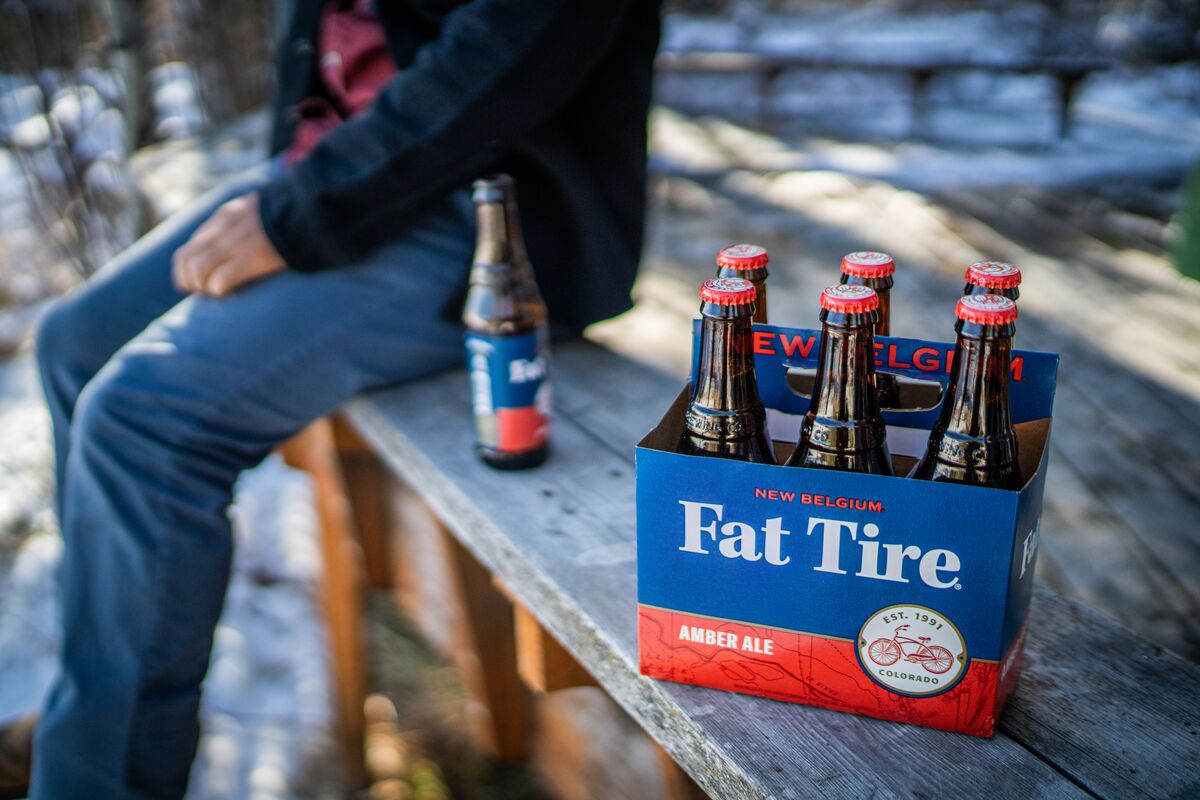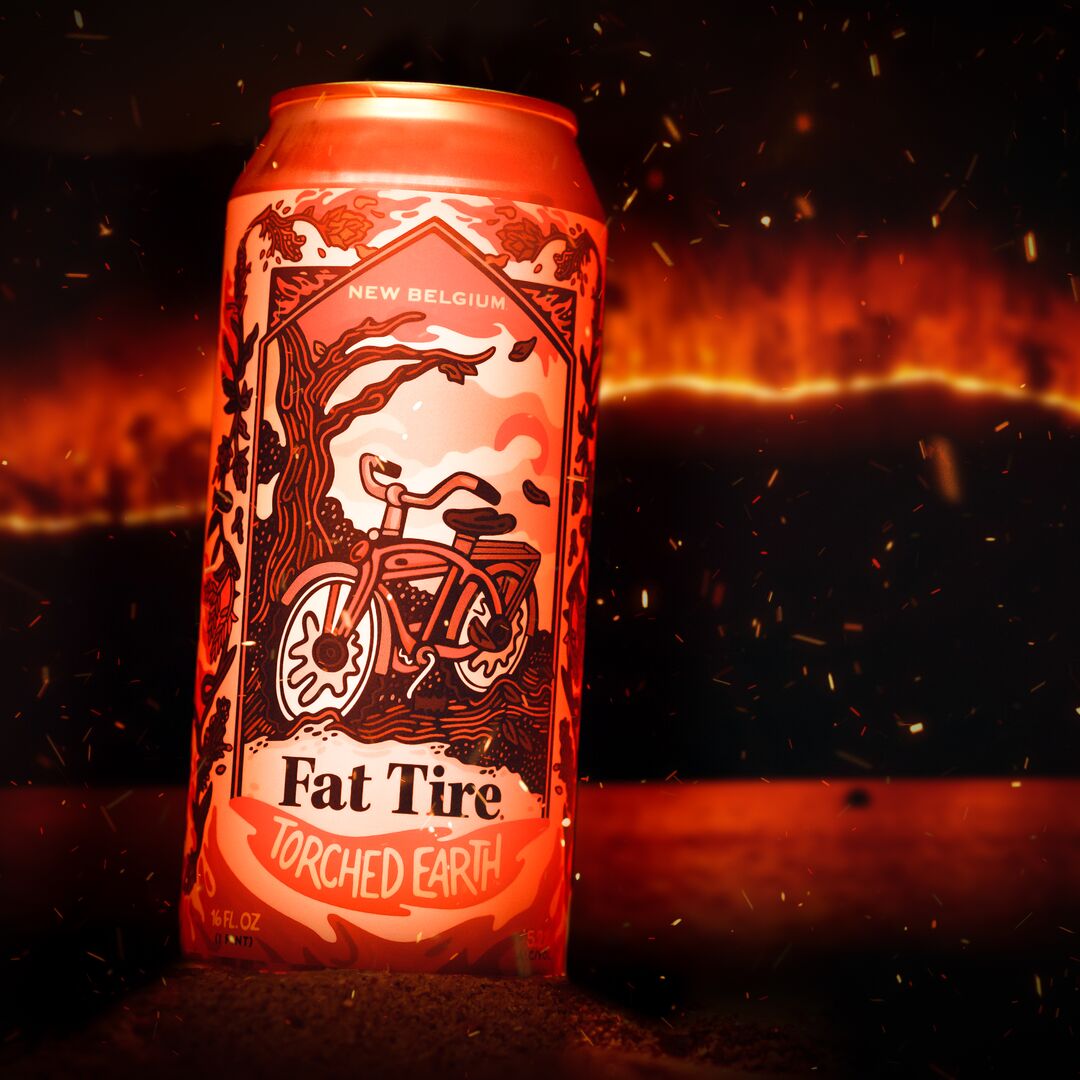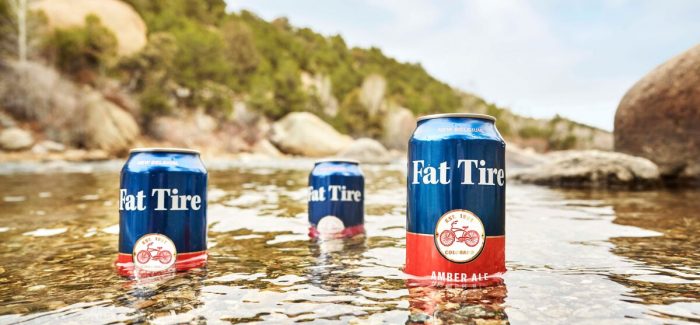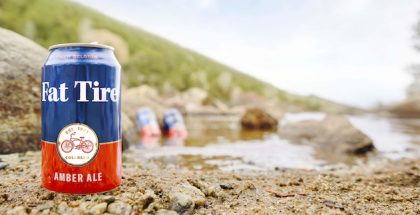New Belgium Brewing Interview | The Carbon Neutral Toolkit
One year after making Fat Tire the first certified carbon neutral beer in the United States, New Belgium Brewing is releasing a Carbon Neutral Toolkit, available on their website, DrinkSustainably.com. With the toolkit, breweries can educate themselves on climate change, learn what outputs they need to track and use the toolkit’s spreadsheet for recording. Additionally, in April, New Belgium released Torched Earth Ale, a beer made of ingredients they believed “would be available in a climate-ravage future.”
Recently, I emailed Katie Wallace, director of Social and Environmental Impact for New Belgium, about the Carbon Neutral Toolkit. Our conversation also included how New Belgium achieved carbon neutral certification for Fat Tire, their plans to be fully carbon neutral by 2030, the response to Torched Earth Ale and actions you, the reader, can take in regards to climate change.
Toolkit Background & Implementation at New Belgium
How long has the Carbon Neutral Toolkit been in the works? Who created the toolkit? When did New Belgium realize that the toolkit should be made public? Was there anything like the Carbon Neutral Toolkit before for breweries?
The toolkit has really been in the works for 30 years. We’ve learned many lessons, some the easy way and others the hard way. This toolkit is a culmination of others’ research as well as our decades of dedication to sustainability. We were the first wind-powered brewery in 1999; we commissioned the first greenhouse gas analysis for beer in 2008 and in 2020, we made Fat Tire the first Carbon Neutral Certified beer in North America. There was never a model for us to follow from the brewing world. We had to learn a lot along the way and it wasn’t always easy.
We’ve spent years dialing in our knowledge and designing a path toward carbon neutrality, leaning on many friends and experts along the way. It’s been a complex and meandering pathway and there’s no use in every brewery starting from scratch–especially when climate change is accelerating at such an alarming rate and putting all of our businesses at risk. So we knew we had to share our learnings to accelerate action on climate where we could–within the brewing industry. We need other companies to join us to stem the worst impacts of climate change before it’s too late. New Belgium’s Sustainability Team, along with other coworkers and our friends at Fosterra Consulting, compiled the Toolkit.

Were there any challenges in creating the toolkit?
The greatest challenge to building the toolkit was the last 30 years of tracking emerging climate science, understanding how our brewery impacted climate change and finding affordable ways to meaningfully and measurably reduce our greenhouse emissions. Navigating carbon-neutral certification was also a challenge. Unlike other developed nations, the United States does not have a national standard for achieving carbon neutral certification. It’s a bit of the “Wild West” in this regard and we had to do copious amounts of research to find the right certification that would adhere to the global standards and prove that we are actually doing something meaningful for climate. We’re very happy to partner with SCS Global Services in that certification. Compiling all of these learnings over the years into one toolkit was the relatively easy part, which made it an obvious next step for us.
Who manages the toolkit at New Belgium? How many people report data for it?
The toolkit is a culmination of numerous processes at New Belgium and the work of many folks across the company. In particular, we have a dedicated Sustainability Team, which is responsible for setting our overall goals and a Carbon Neutral Task Force, which identifies and implements strategies to reduce our emissions across every material source of greenhouse gas emissions (from barley to operations to logistics!).
Achieving Carbon Neutrality for Fat Tire
When was it decided to make Fat Tire a certified carbon neutral brand? How long did it take from deciding to do it to completion?
It took us about six months to heavily research various carbon neutral certification standards as well as quality carbon offset options before we felt confident in this being a meaningful path forward. From there, it took us about six months to go through the certification process. Filling out the Drink Sustainably Greenhouse Gas Accounting Template, which is available in our toolkit, saves a significant amount of time in the certification process.

How did the COVID shutdown affect this process?
COVID shutdowns clearly made business more complicated and dynamic in every way. However, we did not waver on our financial and human resource commitments to fighting climate change as we know climate change is a long-term threat to our business.
Torched Earth Ale
You released Torched Earth Ale in April as a giant call of what beer could look like in the future if our carbon footprint does not get reduced. What kind of response have you received? Do you know if many beer drinkers use the custom digital climate action tool?
Torched Earth really hit a nerve; we got a lot of “thank you’s” from other breweries and our beer drinkers. Climate change is a tangible, urgent threat and Torched Earth helped to make that feel real. And yes, beer drinkers did use our advocacy tool! The vast majority of customers today are concerned about climate change and it was heartening to see that they found our tool helpful in advocating for climate action.

Advice for Other Breweries
What was your relationship with Sunday Beer Co. before they announced they would be carbon neutral? Were you able to do anything specific to help push them to be committed to being carbon neutral? Are they using the Toolkit to become carbon neutral?
One of the original owners of Sunday Beer Co. used to work at New Belgium. When they reached out to us as they were moving through that process, we talked through our certifications. We look forward to continuing to collaborate with Sunday Beer Co.
In CEO Steve Fechheimer’s April 2021 op-ed “Last Call for Climate Action,” he writes, “If you don’t have a climate plan, you don’t have a business plan.” What do you think are the biggest hurdles for breweries, in particular regional-sized breweries, to implement a climate plan? For smaller breweries, something like this seems ideal in the long-term, but impossible in the short-term. In addition, the Toolkit contains a significant amount of data to track as well as perhaps a brand new world of language. What are some steps they can take now that can help build towards the future? Who can they reach out to? Does New Belgium offer any type of over-the-phone or in-person guidance to answer questions?
Not knowing where to start is probably one of the biggest hurdles. By releasing our toolkit, we’re hoping to remove that barrier and help other breweries take action more quickly on this necessary work. Finding the most affordable approach toward carbon neutrality is also challenging, but plenty of low-cost options exist, several of which are called out in the toolkit. We also recommend gaining affordability insights from the Brewers Association Sustainability mentors, John Stier and Matt Gacioch, as well as Fosterra Consulting, which has decades of experience when it comes to energy efficiency and renewable energy financing. A good number of financing options exist and companies can sometimes even pay back a loan with their energy savings.
While we don’t have the staff resources to offer 1:1 guidance, there are amazing resources available through the Brewers Association and Fosterra Consulting, as well as others mentioned in the toolkit. SCS Global Services is also an excellent resource.
Actions Readers Can Take
What actions would you like our readers to take to reduce their carbon footprint or support your efforts?
We want everyone to know that what you buy matters. Many companies actually listen to the topics their customers write to them about and they watch what you buy. The more you choose to buy sustainable products, the more that shows up in the data and drives companies’ decisions. I’ve seen many companies dismiss this data over the years, but today the trend is firmly established and they are taking your interests very seriously. Go to DrinkSustainably.com, find out if your favorite company has a 2030 climate plan, and if they don’t, ask them why. Publicly.
What’s Next for New Belgium?
New Belgium hopes to be fully carbon neutral by 2030. What are the next steps to making that happen?
Yes! We are working to achieve net-zero emissions across our entire company by 2030. True to our core business philosophy, we invest in protecting the prosperity of people and at this time, that means fighting climate change. There’s so much we’re looking to do and we’re so excited about what’s to come. Stay tuned!








Submit a Comment